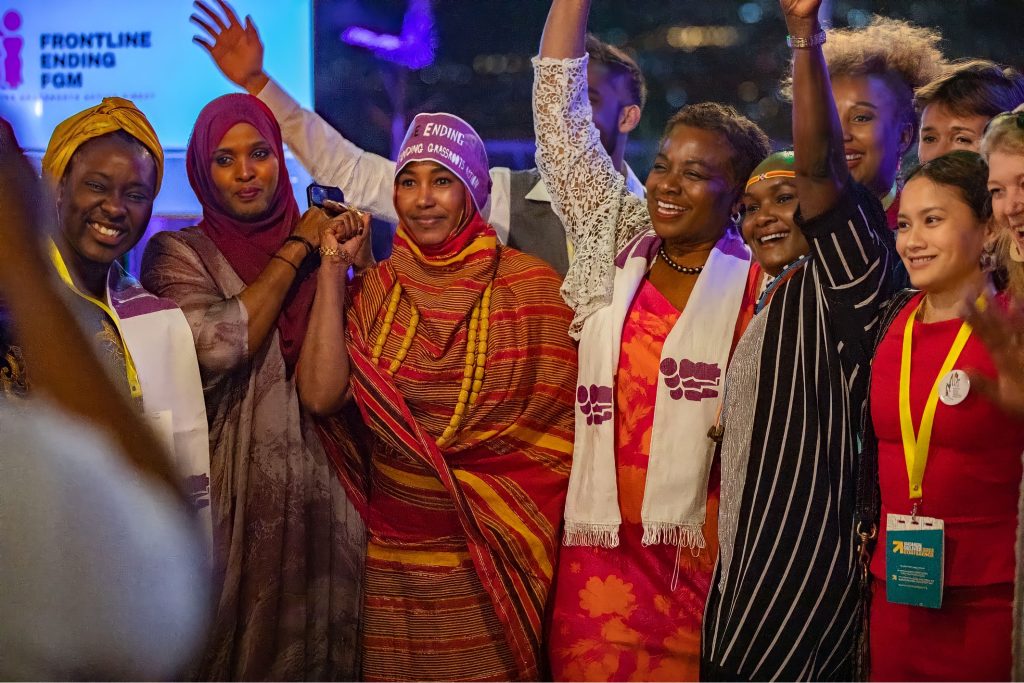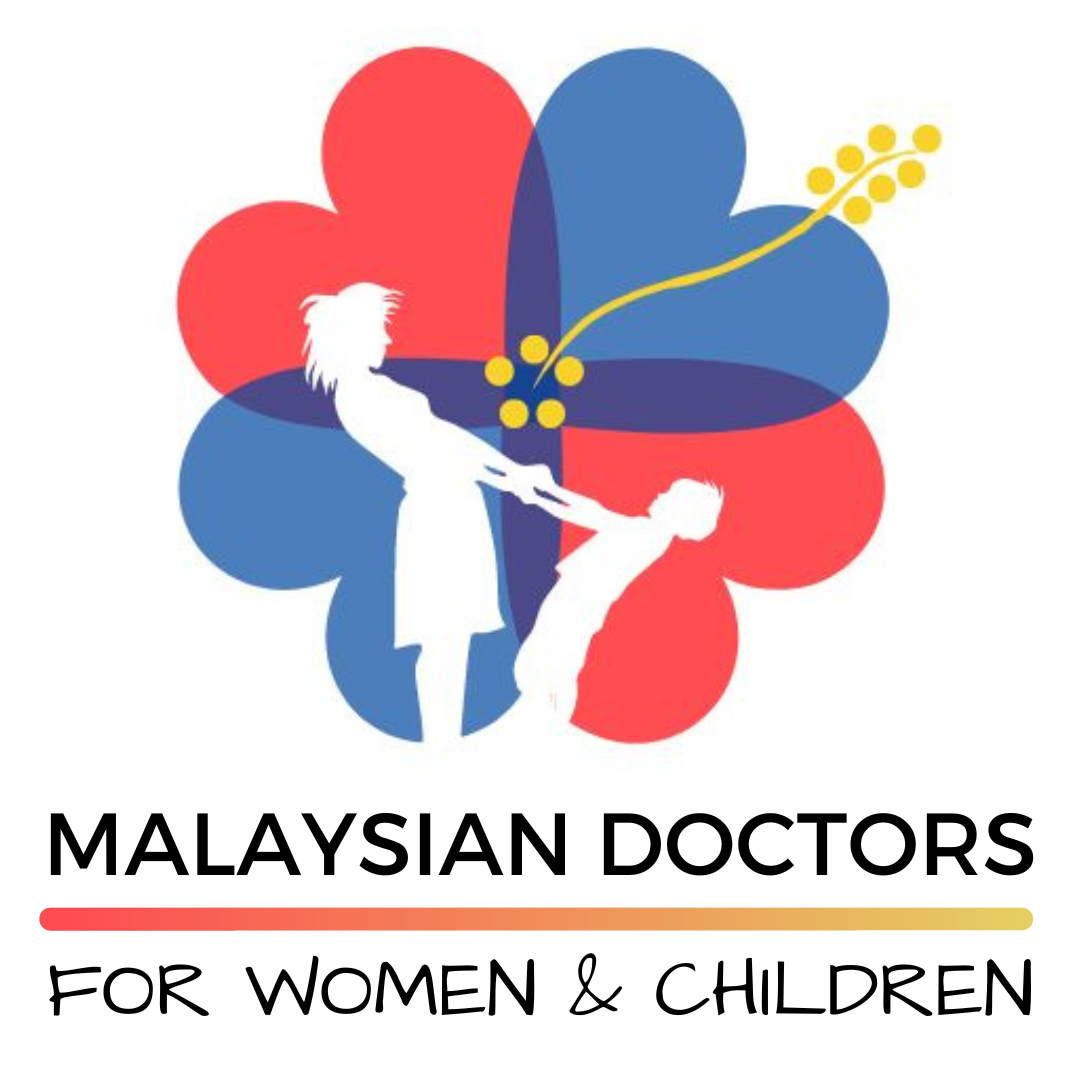On the 15th July 2023, I touched down at Kigali International Airport, Rwanda for the 2023 Women Deliver (WD2023) conference which was held in Kigali from 17th to 20th July 2023. As the Director of the Malaysian Doctors for Women & Children and an active member of the Asia Network to End FGM/C (female genital mutilation/ cutting), I am grateful to Asia Pacific Resource & Research Centre for Women (ARROW) for their sponsorship and the organisation of a successful WD2023 FGM/C pre-conference.
The WD2023 is the largest multisectoral gathering of governmental bodies, international organisations, the private sector, civil society organisations, youth-led, and LGBTQIA+ organisations, and advocates to represent, promote and strengthen efforts and drive solutions for girls, women, and underrepresented populations.
I was one of the lead discussants along with Christina Pallitto from the WHO and Domtila Chesang I-Rep Foundation (I am Responsible Foundation), Kenya on “Emerging Trends: Medicalization, Cross-border FGM/C, FGM/C Economics” at the WD2023 FGM/C pre-conference organised by ARROW and their international partner organisations.
Christina Pallitto gave an overview of FGM/C and the role of the World Health Organization in eliminating this practice. In particular, Christina shared WHO strategies for governments to eliminate FGM/C.
However, these strategies could not work in countries where FGM/C is not illegal. I shared perspectives on the Malaysian and Southeast Asian practice of the type 4 FGM/C subtype of needling or pricking the external clitoris in infants and how increasing rates of medicalisation of FGM/C cause more harm, not harm reduction. There is no explicit law banning FGM/C in Malaysia. In a 2020 study, 20.5% of Malay Muslim doctors admitted to cutting the clitoris which represents type 1 FGM/C with greater risks and complications. Although the Malaysian practice (type 4 FGM/C subtype of needling/ pricking the external clitoris) does not cause long-term obstetrics harm, we fail to recognise that sexual pleasure is an important outcome which can be a main contributor to the breakdown in marriage and family life (and is difficult to measure especially when FGM/C is done in infants). In Southeast Asian society, speaking of sex is still taboo.
We must recognise that strategies to eliminate FGM/C in Africa may not be applicable to Southeast Asian practice. In Malaysia, FGM/C is not a requirement for marriage or to become a Muslim, although adult women who were not born Muslims have undergone FGM/C for these reasons. In contrast, Domtilla Chesang explained how climate change can increase the rates of FGM/C in Kenya. The effects of climate change cause crop failure which means a significant reduction in household income. Families are then forced to marry off their daughters earlier to have fewer mouths to feed and to earn their dowries, and for these daughters to be marriageable, they need to undergo FGM/C. Due to being married, these girls are taken out of school and therefore will never complete their secondary education and enter college or university. The cycle repeats when these girls give birth to girls.

In the Malaysian practice, it is not economic reasons that drive parents to perform FGM/C to their infant daughters. Rather, Malaysian parents truly believe that FGM/C is harmless and that it is essential for the spiritual enhancement of their daughters though we cannot deny the reasons behind the practice are rooted in misogyny. Myths such as uncircumcised women being wilder than those who are not are unfounded. If parents want their daughters to self-regulate their sexual drives, then education is a better method. A much better strategy is to educate both men and women at a very young age to respect each other’s bodily autonomy through comprehensive sexuality education in schools.
A barrier to eliminating FGM/C in many countries including Malaysia is the belief that FGM/C elimination is a Western agenda and a way to curb cultural practices, which is of course, not true. I echoed the thoughts of Sivananthi Thanenthiran, Executive Director of ARROW at the UNFPA’s WD2023 pre-conference on “Fostering Partnerships to Realise Bodily Autonomy”, “Sexual and reproductive health rights is seen as a white colonial agenda. Civil society organisations rely on small pockets of funding but are getting pushback from the government. Our governments need to take responsibility, provide funding and support by taking leadership from young feminists, not just engaging.” Therefore, it is essential for governments to lean into the leadership of youth advocates and to provide the appropriate support to avoid reliance on international funding.
On eliminating the funding gap, Domtila Chesang emphasised the importance of removing unnecessary barriers such as requiring non-profits to have built capacity before applying for funding. “This is similar to asking for 5 years of work experience from a fresh graduate,” she opined. Dr Leyla Hussein Gikandi OBE, founder of The Dahlia Project and first Black woman rector of the University of St Andrews, said that lack of funding hampers the progress of ending FGM/C as we are not reframing FGM/C correctly. “FGM/C cannot be reframed as just a cultural practice, if you’re pinning a girl down, spreading her legs and introducing a shaper object to their genitalia – that’s sexual assault.”
While I agree with Dr Leyla Hussein Gikandi’s statement, I cannot see reframing FGM/C in this way is in any way helpful to eliminating FGM/C in Malaysia and Southeast Asia. I concur with Saza Faradilla of End FGC Singapore’s statement during a session at WD2023, I have zero tolerance for FGM/C but criminalisation is not a route that we should pursue at present in Malaysia and Singapore. Education is key in Malaysia and Singapore.
We need to remember that any strategies for eliminating FGM/C should be unique to the culture. We cannot have international organisations telling local advocates what works and what doesn’t in terms of advocating the elimination of FGM/C in their communities and we cannot impose standards that are impossible to achieve in a low-resource setting for an organisation to qualify for funding – doing so is infantilising and reeks of White saviourism. We have to trust highly educated professionals who have a greater understanding of their own equally superior cultures and therefore know what strategies work and do not work in the elimination of FGM/C in their own cultures.
The girls run to you, they don’t run to the funders. If we cannot provide the solutions, what is the point of providing anti-FGM education? Trust us to do the work that we are already doing.
– Domtila Chesang, I-Rep Foundation
The global end FGM/C movement’s discussions at WD2023 culminated in the announcement of the Kigali Declaration by Nabeela Iqbal, founder of the Sisterhood Initiative in Sri Lanka, who represented the Asia Network to End FGM/C, making an urgent appeal to fund more grassroots organisations working to end FGM/C. The Kigali Declaration can be read here.

I believe the pre-conference is a step in the right direction to eliminate FGM/C in Asia. I am grateful to put names to the many faces I see online during the Asia Network to End FGM/C virtual meetings in real life and to meet other activists of FGM/C elimination from other organisations from different parts of the world. They are wonderful and passionate people and many of them are survivors of FGM/C. It is a difficult space for survivors of FGM/C to be in, but they are in this space because ending FGM/C is crucial. However, like many of them, I am tired of conversations.
I am tired of listening to “more funding to grassroots”, “collaborations” and “spaces.” We are now post-WD2023. Enough with the talking, let’s see some action.
To that end, the Malaysian Doctors for Women & Children welcome any enquiries for collaboration to end FGM/C. The importance of getting healthcare professionals behind the anti-FGM/C movement cannot be overstated. Presently, there are not enough healthcare professionals involved in collaborating with civil society organisations to support eliminating this practice. The Malaysian Doctors for Women & Children are ready to provide evidence-based research and work with civil society organisations across Asia to end FGM/C.

Resources:
- “Ending FGC: A Toolkit for Engaging Practitioners” by the Asia Network to End FGM/C
- Female Circumcision is Unnecessary: Girls are Perfect as They Are

One thought to “Reflections of the 2023 Women Deliver and What it Means for Eliminating FGM/C in Asia – Dr Hannah Nazri”
Pingback: Reflections of 2023 Women Deliver - Hannah.Nazri.org